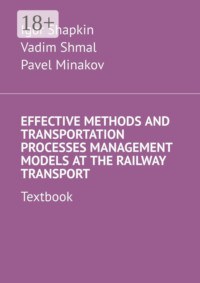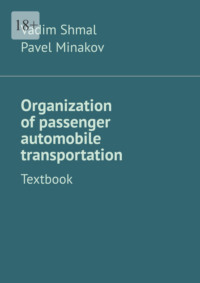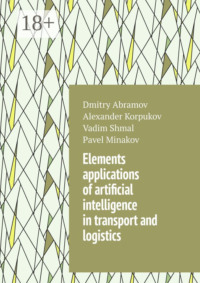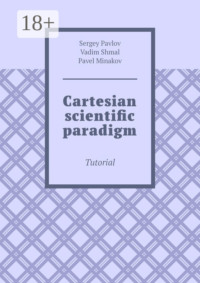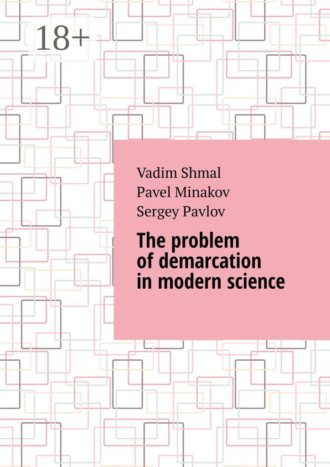
Полная версия
The problem of demarcation in modern science
Augustine, according to Reuchlin, was wrong in teaching that man cannot receive true knowledge of the universe, but that man can attain knowledge through faith and the Holy Spirit in the knowledge of God. Although Augustine believed that human knowledge is limited, Reuchlin believed that human knowledge of the universe is unlimited. Reuchlin believed that with the help of reason, a person can receive a clear revelation about God and the universe.
Reuchlin was the first to suggest that human intelligence has unlimited potential. However, Reuchlin believed that a person’s ability to know is limited and that he can achieve knowledge of God only through faith and through the Holy Spirit.
Augustine believed that God is perfect, just, and good. Reuchlin believed that God was good and perfect, but the attributes of perfection were of such a nature that man could not achieve them. Reuchlin believed that the knowledge of God can be obtained through faith.
Reuchlin’s followers adhered to a form of Calvinism known as systematic theology.
Augustine, like Calvin, believed that human knowledge of God and the universe is limited. John Calvin, however, believed that man’s knowledge of the Universe is not limited, and believed that man is able to understand the Universe.
Calvin believed that man’s knowledge of God and the Universe is limited, but the use of reason can bring this limitation to man. Calvin did not believe that man’s ability to know the universe is limited.
It was not unusual for a sixteenth-century theologian to hold different views of the nature of God.
St. Augustine believed that through the Holy Spirit people can learn. This made him reject the system of modalism and force him to adhere to the doctrine of theosis, according to which a person can achieve a state of perfect communion with God.
Montaigne, a French philosopher and poet, wrote about Augustine’s epistemology and the knowledge of God. Montaigne believed that human knowledge is limited and that God can only be known through faith in God and the use of reason.
Montaigne believed that a person cannot have true knowledge of God without the help of God and the Holy Spirit. Montaigne believed that «the truth of faith is the only knowledge that can produce true knowledge.» Montaigne believes that there is only one and final truth, and that knowledge is obtained through faith in the «absolute one God.» Montaigne believed that faith, according to Augustine, is a means of knowledge, and the truth of faith is true knowledge. This led Montaigne to believe that if a person believes in a being outside the universe and if this being has infinite knowledge, then the person will reach a state that is known to God.
Gottfried Leibniz believed that human intelligence is limited by reason. Leibniz believed that man is limited in his understanding of the Universe, because he is limited by natural laws that limit his ability to perceive the Universe in its entirety.
Interpretation
Aristotle described in detail what scientific knowledge of something means. To be scientific, he said, one has to deal with causes, use logical evidence, and identify universals that are «inherent» in particulars of meaning.
The use of the senses must be consistent with our scientific research. As in Ancient Greece, we are fascinated by the mysteries of the world around us. There is an amazing world of form and formlessness, which is so indescribable, while inside we can see the complex details of reality and make judgments about what is right and what is wrong. We study all aspects of our experience and discover the universals and peculiarities of our experience.
We use the terms of our feelings as if they were nothing more than an abstract idea that we can integrate in our mind to see something or be something, but never think of it as a physical thing.
Here, according to Aristotle, there is an image of the sciences as images of each other. First, we have our own feelings, which we work with as if they were our abstract concepts. We perceive the table and turn it to see the reality of its hardness, the variations in its composition, the presence of chairs around it and the difference in color between them, and then we turn our eyes again to look at our concept. This concept is like a painting or film, and we turn our eyes to see the whole reality of that picture or film.
There is science as a picture of reality that uses our sensory experience, but has nothing to do with it. Our knowledge in physics is similar to our science of feelings and therefore consists of many thoughts of philosophers and scientists who came before us, who looked deeply into this world and saw its beauty and horror. The true image of our physics is a new world that offers an understanding of the nature of the natural world, the material world.
There is science as something that follows and develops from the science of the past. Each of us is born with a scientific education that we must use to solve our current problems and understand what really is in our experience. We must learn everything we can from the first stage of science, sensory experience, and use this knowledge to reach the second stage and then the third. Only in this way can we hope to reach the fourth stage, in which we comprehend the unknown universe of universal qualities.
Let me look at the works of Aristotle and compare them with modern scientific and mathematical journals. I want to compare science with other areas of knowledge such as philosophy, mathematics, and so on.
Modern scientific journals are compiled and edited by an elite group of scientists. Their contributions are assessed on the basis of mathematical and conceptual methods that are equivalent to the interpretations of Plato and Aristotle.
Mathematics – master of everything in science. Thus, all sciences are incomplete, and only mathematics is the absolute in our world.
So what does this have to do with your thesis? What ideas in your own research and what you say about it are wrong? What do you think is not true and how can you learn to understand the world differently?
I have often asked myself this question. While trying to make sense of my research, I found that when I tried to approach my topic scientifically, I completely failed. When I approach it as a pure idea, and not as a real, concrete image, it turns out that it is much easier to understand.
What was my method? I think there are things we can do if we approach our work from a new perspective.
M s can use their own conceptual knowledge. When you look at something in the real world, you can see what it is without trying to put it into words. But when you try to express a concept in words, you see something different, and therefore the translation cannot really reflect reality.
That is why sometimes it is very difficult to understand something, even if we are familiar with it. When someone talks about something, our mind tries to clothe this concept in a simple and understandable form, in words. This is what actually happens when we try to explain something in words. What we mean is not that there is «orange», but there is a whole, complex universe around it. But we don’t have a good way to describe such things, so we try to put it into words.
This is a natural thing, and we do it all the time when we try to describe the concepts of life, money, sports or the universe. There is an idea of what it is, but it is not always the same. When our mind tries to put it into words, we see something different. For example, when we try to describe a plate of food, we do not see a plate full of orange dale e k. We see a complex system of shapes, colors and smells. So if we cannot describe it in words, we try to abstract it into symbols. We use our knowledge of this complex system to try to describe what we see.
When we write an essay, the images we are using will be represented in red, the idea will be represented in green, and the idea of abstraction will be represented in blue. We can denote certain objects in orange, some blue, and so on, but on the way to represent these things will be different. We use this symbol to represent various ideas. This is how we conceptualize things, and since we conceptualize them, this is how we interpret them.
What we see is actually a series of real and imaginary things in a complex combination. The world is a complex system that is constantly changing, so the way we try to describe it is constantly changing. This is what I call the illusory universe.
So why don’t we just see the world as it really is? Well, because we can’t. We do not see it as it really is, and we cannot explain it in words. This is why we use words. This is how we represent what we see.
This is one of the important parts of my approach. I try to approach my topic from a different perspective. I look at this from the point of view of the idea of the object, not from the point of view of how it is actually seen. When my brain tries to explain it, I start looking at it from a different perspective. I’m starting to see this as a series of symbols.
How can this understanding be translated? What do we do when we see something we shouldn’t see? We must abstract ourselves from this. In other words, we move to another level and interpret the scene in terms of symbols. We use symbols to see things, but symbols are not what they actually appear.
We can see what we shouldn’t see, so we interpret the scene and explain it with symbols. To go one level higher, we use these symbols to abstract from the scene and explain it in terms of reality. This level of abstraction is what we have to do to make it easier to understand the world. This level of abstraction is what we have to do to simplify the explanation of the world. The point of this is to help us understand everything we have ever been taught and understand everything that is happening around us.
Logical positivism
Logical positivism, formulated in the 1920s, held that only statements about facts or logical relationships between concepts make sense. These statements are not called sentences, but are said to represent true beliefs.
It should be noted, however, that although «mereological» statements may be false, logical positivists also considered them factual, so the proper name for such statements is «perception».
Logical positivists believe that while such claims are possible, they must be false anyway.
Logical positivism originated in Hegelian philosophy, especially in his dialectics and its criticism. While making some dialectical criticism of determinism, determinism itself was not part of the Marxist analysis.
The philosopher Karl Popper proposed a synthesis of logical positivism, functionalism and socialism. Popper popularized the use of the term «positivism».
Logical positivism, formulated in the 1920s, argued that the truth of a statement is «whatever is consistent with observable facts.»
The concept of a truth principle in modern logic does not imply this – for example, the statement that «all numbers are rational» is not really a statement about what is true, but only about what can be proved.
Logical positivists also do not exclude so-called non-empirical statements.
The statement that «x» or «y» is more likely to be true in the case of «X» as opposed to the case «Y» requires that «X» and «Y» be consistent statements, which they claim to be means that logical positivists must argue that «truths» of this kind are not really «truths» or «truths» of the world.
However, most subsequent systems of epistemology, such as realism, positivism, and analytical philosophy, tend to assume that logical positivists were right in saying that there are non-empirical statements that are also true.
Practical applications such as medicine and legal practice tend to focus on statements that can be falsified or supported, and thus the assertion that true statements are necessarily true is removed from the problem of determining whether a particular statement is true or false…
However, since modern theories of mind and cognition are still often based on the traditional form of empiricism, the problem of non-empirical statements is still relevant.
The statement that «x» is more likely to be true in the case of «X» than in the case of «Y» is often viewed as an example of a reduction axiom with axioms of the form «x» and «y». truth is perceived as an obvious axiom of the existence of a relationship.
However, it has also been argued that such arguments presuppose the idea that there is no cognitive system – and therefore no belief system – that can speak of something other than itself, a view that has not gained widespread acceptance.
A particularly important form of logical positivism that is commonly associated with the scientific method has come to be known as logical empiricism and is closely related to the knowledge argument for the existence of God.
In the nineteenth century, Russell, Frege and most logical positivists defended the strong version of the thesis of the logical positivists: the «logical positivism», i.e. an adequate and correct theory of knowledge itself is a true science. Since then, this thesis has been questioned by some adherents of logical empiricism.
After Wittgenstein’s theory of concepts Wittgenstein influenced the logic, some of whom believe that what is true for proposals (including the logical positivists) is true for any «concepts», and some of them believe that the truth of one kind of truth is usually and necessarily linked with truths of a different kind.
The new thesis arose as a result of the development of Wittgenstein’s philosophy. Most logical positivists denied the possibility of metaphysics; but there were some who thought that metaphysics was wrong on only one occasion, and that was when it gave meaning to things that didn’t really make sense.
Some logical positivists took this position and argued that metaphysics should only be taught in primary schools, if at all, and that metaphysics should have no place in higher education or professions. Others, however, argued that this position is inconsistent.
Russell called the first position «twice negative logic.»
In the second position, «double positive logic» describes the usual human use of language in which there is no opposition between sentences that imply or make sense of each other.
When Wittgenstein and his followers speak of an «intentional binding relationship,» they mean that the word must refer to something else in order to have meaning.
From this point of view, there is no metaphysics or even the science of metaphysics, because there is no opposite entity in the universe.
Many of the conclusions Wittgenstein is t e, which are known as anti comprehensionist, in fact, they argue that any relation between the world and the human mind, there must be.
In his Remarks on Foundations of Mathematics, Wittgenstein argued that (at least briefly and in extremely restrictive terms) there is no truth, reality or existence as we know them.
In his Treatise on Human Knowledge, and in his treatise on logic and philosophy, Wittgenstein believed that an attempt to explain the world of formal logic was likely to give a false idea of reality. Logical positivists were in principle open to these objections.
Wittgenstein later argued that the rejection of transcendental idealism (and therefore ontology) was a major mistake of logical positivists, because it led them to misunderstand the nature of objects. He called their position «superstitious» because it is based on the false belief that one can distinguish «what is real» from «what is false», which he himself considered dubious.
According to Wittgenstein, it is obvious to logical positivists that nothing real can matter and that everything that is either a phenomenon or an illusion (or something that can be called a phenomenon or an illusion). He called the approach of the logical positivists «superstitious» because it is based on the assumption that they can only explain the world «by the terms on which we are allowed to speak of what is real,» and that they did not realize that reality cannot be treated in this way.
As Wittgenstein argued, and as Fodor and Eilanden argued for his arguments, it is impossible to speak of «the world» using the terms adopted by logical positivists, and it is meaningless to say that it is possible to describe the world with the conditions they use.
Wittgenstein’s arguments show that it is impossible to explain the world in the language of logic (or his paradigm of language, Tractatus Logico – Philosophicus).
One of the results is that Wittgenstein believed that a person cannot even speak about what is real using the language of logic, since logic cannot identify what is real. He also argued that it is impossible to identify «that which is possible» with the terms in which they speak about him (and, in the same way, it is impossible to identify «that which is unreal» with the terms in which they speak about him).
According to Wittgenstein, both «unreal» and «impossible» can be defined based on the terms used to describe them.
It is important to note that all this talk about the language used to describe reality and the language used to identify things that cannot be spoken to are entirely conceptual. It is not at all obvious that language in general, or logic of statements in particular, can be used to describe reality or what is «impossible».
Logical positivists took Wittgenstein ’s arguments about what they were, about the impossibility of describing the world in language, as about the meaninglessness of statements. And in later life, Wittgenstein seems to have adopted the positivist assumption that language does not matter and cannot distinguish the unreal from the real.
However, this «logical positivism» is actually much more concrete than is usually assumed.
In the Tractatus Logico – Philosophicus, Wittgenstein argued that judgment is meaningful only if it can be used to determine, within a given language system, whether something is «real».
Thus, from a linguistic point of view, we could say that the word «non-existence» («nihil») or the phrase «there is no such thing as non-existence» («gaunenlos siegen nicht») are meaningless expressions.
It is important to note that the Tractatus does not state that the only sentence that matters is the true sentence. It is possible to define sentences in languages in which it is impossible to say anything about the meaning of a sentence so that they can be used to define what is real, and Wittgenstein even argued that sentences in such languages make sense.
The term «theory» is used by Wittgenstein in a completely different way. For him, theory is a formal system (in the sense of the «language of theory») in which a number of statements about the real are attributed to objects and properties in the model of the world.
It is not immediately obvious that it is possible to define a «model of the world» in the sense in which Wittgenstein used the term, but he did. The «model of the world» that Wittgenstein defines in this context is not a physical model, but a logical model. (This can be viewed as the same as how some prefer to think of it as a model of a given mathematical theory.)
A theory in theoretical language is a set of statements about the real that can be used to determine the reality of something.
A good example of a theory is Einstein’s special theory of relativity, which, thanks to the use of a mathematical formal language, is perfectly suited to describe what happens to an observer in a special system of relativistic physics.
If the model of the world doesn’t really explain everything about the world, then it may not be a very good model after all.
Indeed, some say that the logical positivist system can actually explain more about the world than any theory it discusses. But if the system of logical positivism is not a very good model of the world, it can still be used to determine whether something is real.
To use Wittgenstein’s terminology, the distinction between the real and the unreal for Wittgenstein is «visual.»
For logical positivists, the world is «non-visual».
Wittgenstein, however, does not regard the world as" non-visual, "and even if it were, it would not be a problem: it is entirely possible to describe the world in visual language. In any case, the world is a visual object, even if the universe it is in is not.
The central theme of Wittgenstein’s later philosophy is his view that language cannot distinguish between the real and the unreal, that the world is an understandable world, and that the meaning of a statement can be determined using this statement.
Some critics have argued that these views do not «challenge» the traditional position that the world is understandable, but that they do challenge the old position that language cannot be used to distinguish the real from the unreal.
Development of ontological relativism
According to Alfred Jules Ayer, metaphysicians claim to have «a knowledge of reality that [transcends] the phenomenal world.» Ayer, a member of the Vienna Circle and a well-known English logical positivist, argued that it was impossible to make any statements about the world outside of direct sensory perception. If an empirical statement such as «The earth revolves around the sun,» Ayer argues, is a statement about the world outside the realm of sense perception, then that too cannot be explained.
The Philosopher John F. Bennett formulated the «ontological anti-realistic" view of truth and truthfulness, which defies the «spirit of ontological relativism that permeates much of metaphysics» and against what Ayer, George Dyson and many other philosophers opposed to competing concepts of metaphysics in the 20- m and 21st centuries.
Ontological realism in philosophy is the idea that objects exist independently of their behavior and relationships. Realism in this sense means that the objects in question and their relationships are real and do not depend on our beliefs and opinions. According to ontological realism, the truth of any statement about the relationship of an object, for example, «the table is actually a table,» does not depend on the person’s beliefs about the table, for example, «a table is probably a chair» or a person’s opinion about the relationship of a table to a chair, for example part of the table, «or even the relation of a chair to a table. For example, whether a person is sitting at a table depends on the statement «the table is the table,» which is a real statement. Ontological realism is usually associated with the positions of logical positivists. This school of thought emerged in the mid-1800s as a reaction to Cartesianism, which dominated the philosophy of science at the time.
Bennett argued that in accordance with ontological realism, people cannot know about objects or their relationships, because the logical consequences of this will be contradictory, that is, the very concept of «truth» (as opposed to an opinion or assumption), going beyond the phenomenal world, is impossible… For example, people cannot know about a table, and therefore the very concept of a table is beyond experience. The logical consequence of this fact is that the right to deny the existence of an object cannot be justified. As Bennett puts it, «if [an object] has no ’informative power’ other than our relationship with the world, then we are able not only to know its truth, but also to insist on its truth with thoughts, our own and others». The logical consequence of ontological anti-realism is that ontological statements about the world are invalid.
Bennett attributes ontological antirealism to logical positivists. For Bennett, positivists questioned the idea that a statement about an object’s relationship, such as «a table is actually a table,» is also a statement about that object, which Bennett calls an «ontological» statement. According to Bennett, ontological statements are too «abstract» to be true. For Bennett, an ontological statement about an object must represent the state of affairs with an object and must be able to justify a statement about an object. Thus, from Bennett’s point of view, a statement about the relationship of an object, such as «a table is actually a table», is also a true ontological statement, but its truth is incompatible with the truth of another ontological statement concerning the same object, that is, its relation to chair. Because of this incompatibility, statements about this object cannot be true if both statements are not true, which would be incompatible with the true nature of the object.


